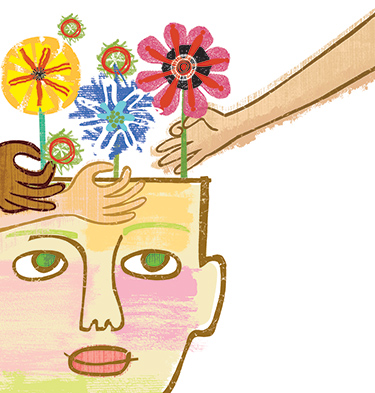UW-led project to give Head Start a boost
 Head Start is often called the nation’s leading investment in early childhood education. While this is certainly true—the U.S. spent $7.2 billion in 2010 to serve almost a million children—it isn’t clear which teaching and learning practices are best. Now, two UW College of Education researchers, both with previous classroom experience, are going to find out.
Head Start is often called the nation’s leading investment in early childhood education. While this is certainly true—the U.S. spent $7.2 billion in 2010 to serve almost a million children—it isn’t clear which teaching and learning practices are best. Now, two UW College of Education researchers, both with previous classroom experience, are going to find out.
“The evidence is clear that early learning can make a lifetime of difference,” says Tom Stritikus, dean of the UW College of Education. “The new center will allow the college—together with our collaborators across the country—to bring to scale the best practices that we’ve collectively learned through years of research. It’s a big project for us with a big payoff for the children.”
Susan Sandall and Gail Joseph are the lead researchers on a $40 million federal Head Start grant to create a new National Center on Quality Teaching and Learning based at the UW. Over the next five years, the center will work to identify and share best practices in teaching and learning with Head Start teachers and staff.
“There is a greater expectation today that those who are teaching young children should have higher education in how children learn. Historically, it has not been thought that this was necessary for preschool teachers, but it makes a difference,” Sandall says. “Preschool teaching is not babysitting. We need to be sure that all children are learning, and teachers need to have the ability to teach children who are really struggling or who have special needs.”
The Center will:
- Gather, assess, and catalog research-based practices on early-childhood assessment, curriculum and instruction.
- Implement practices proven to be effective into daily use through professional development of Head Start staff and create a system to sustain the use of those practices.
- Collect and review data to appraise improved quality and student learning in Head Start classrooms.
- Foster links among parents, teachers, and pre-kindergarten and kindergarten staff to assist Head Start students.
The goal of Head Start—which began in 1965 as part of President Lyndon Johnson’s War on Poverty—has been to level the playing field so that economically disadvantaged youngsters start school on an equal footing with everyone else. But in the past decade, academic researchers and some political groups have questioned the impact of the program that serves about 28 percent of eligible 3- to 5-year-olds.
Children who enter Head Start are already behind their peers, so “we need to change their trajectory and “bending the curve” is a tough job,” Sandall says.
The existing system of mentoring has lacked the ability to measure the quality of the content that’s being delivered. “We know, for example, some things about what works in classrooms with children, but we don’t always bring those lessons forward with us,” she says.
The six other institutions collaborating with the UW on this project are the University of Virginia, Vanderbilt University, Iowa State University, the University of Southern Florida, the University of Wisconsin-Milwaukee and the University of Illinois at Urbana Champaign.